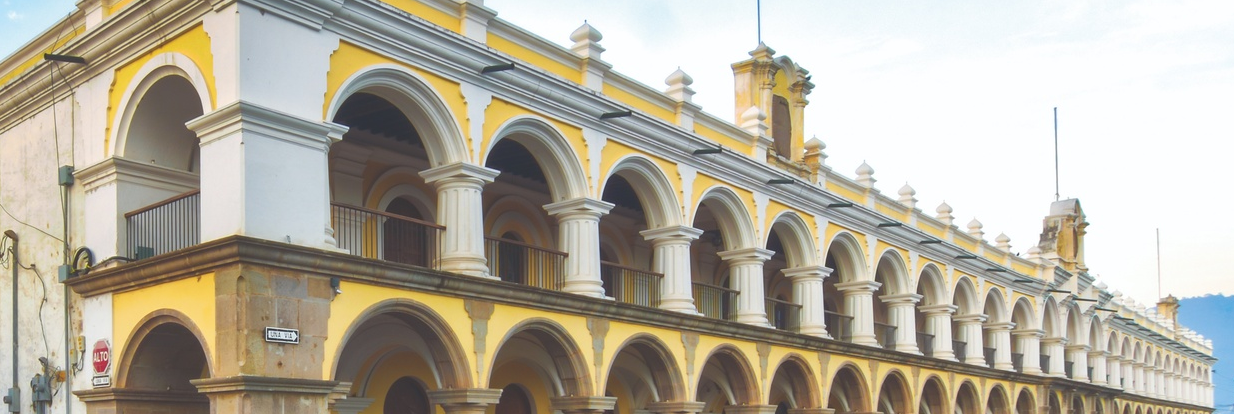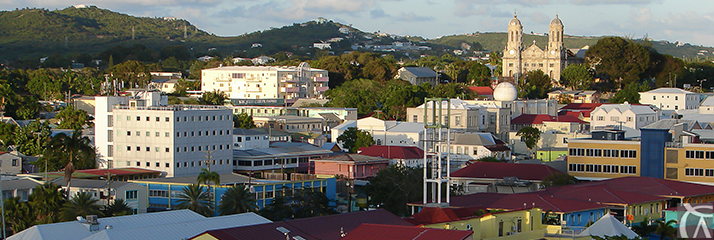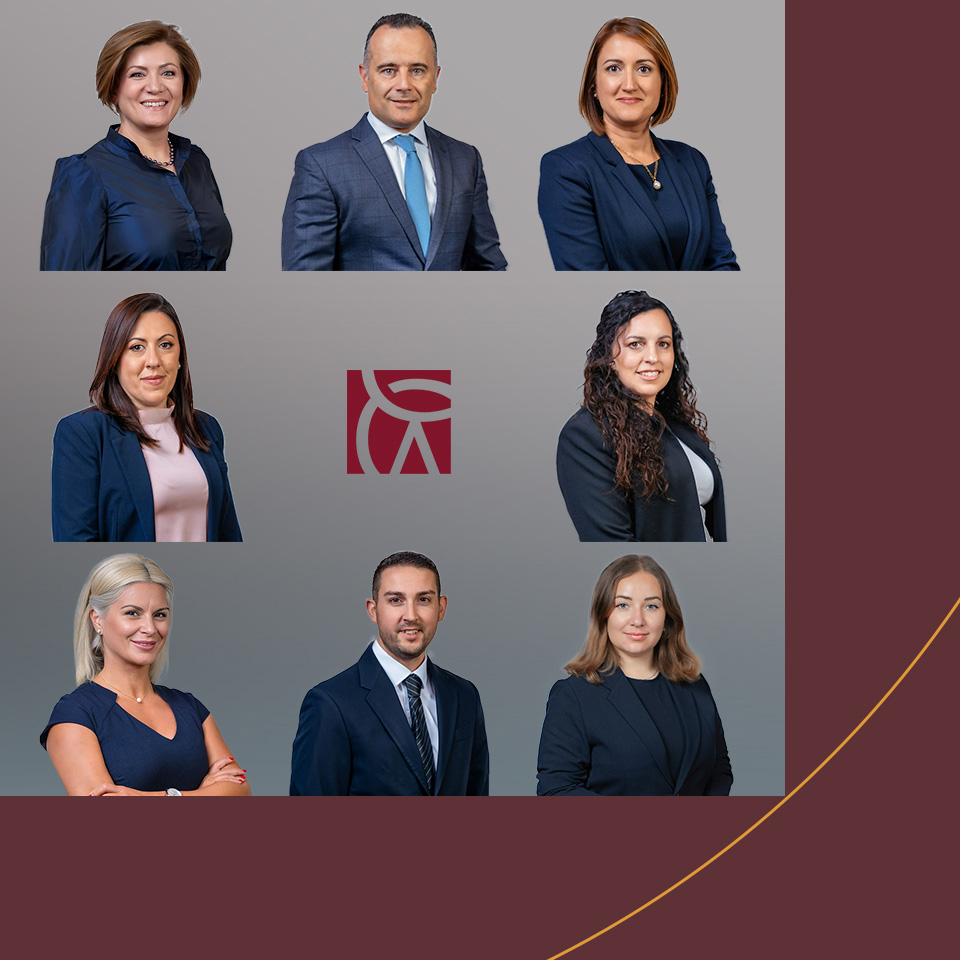Citizenship by Investment :: Antigua & Barbuda
Citizenship by Investment: Antigua & Barbuda
About Antigua & Barbuda
Antigua and Barbuda is an Independent Commonwealth state located in the Caribbean Sea, consisting of two islands: Antigua and Barbuda and a number of smaller islands. Its capital is St.John's on Antigua with a population amounting to circa 91,000 persons and the main language is English. Christopher Columbus sighted the islands in 1493 and named it after a church in Seville: Santa Maria de la Antigua. After unsuccessful attempts at colonisation by the Spanish and French, Antigua was colonised by Sir Thomas Warner in 1632 and formally become a British colony in 1667. The nearby island of Barbuda was colonized in 1678 and later, the crown granted the island to the Codrington family in 1685. Barbuda reverted back to the crown in the late 19th century, and its administration came to be so closely related to that of Antigua that it eventually became a dependency of that island. Demand for self-determination developed in parallel with a concern to create political and economic linkages with other small Caribbean countries. In 1958, Antigua joined the West Indies Federation, however, this was dissolved in 1962. Later on, provision was made to assume a status of association with the United Kingdom in 1967. As an associated state, Antigua was fully self-governing in all internal affairs, while the UK retained responsibility for external affairs and defense. By the 1970's Antigua had developed an Independence movement which opposed the British plan of Independence within a federation of the island. The autonomy talks were complicated by the fact that Barbuda, long a dependency of Antigua, felt that it had been economically stifled by the larger island and wanted to secede. Finally, on 1st November 1981, Antigua and Barbuda achieved Independence with Vere Bird as the first prime minister. The state obtained United Nations and Commonwealth membership and joined the Organisation of East Caribbean States.
The country is now an Independent constitutional monarchy which recognized Queen Elizabeth II as Head of State. She is represented by a Governor General appointed on the advice of the Prime Minister. The Government is a parliamentary democracy composed of a bicameral legislature. There is a directly elected lower House of Representatives of 17 members for a term of not more than 5 years and an upper Senate composed of 17 members appointed by the Governor General at his own discretion on the Prime Minister's recommendation.
With over 300 beaches of clean waters, the tropical islands of Antigua and Barbuda are an inviting paradise and considered to be one of the most beautiful places in the world. As a result, tourism is the key driver of GDP and generates around 60% of the island's income. Other economic contributing factors include government services, agriculture, fishing, forestry, mining, financial services and retail.
Citizenship by Investment
The Citizenship by Investment Program (CIP) was established following parliamentary assent to the Antigua and Barbuda Citizenship by Investment Regulations of 2014. These Regulations are contained in Section 6 of the Citizenship by Investment Act 2014. These provisions allow the government to operate a program under which citizenship is granted to persons who qualify under criteria approved by parliament. The CIP requires a person to make a significant economic contribution to the country. In exchange, and subject to stringent application procedures, including thorough background checks, the applicants and their families are granted citizenship.
To qualify for citizenship, the primary applicant must be over 18 years of age, meet the application requirements and select one of the three following investments:
- The donation option in the National Development Fund thus includes the following :
A. Single Applicant or a family of up to 4 applicants
• US $100,000 Contribution
• US $25,000 Processing Fees
B. Family of 5 applicants or more
• US $125,000 Contribution
• US $15,000 Processing Fees for each additional dependent
- An investment of at least US $400,000 into one of the approved real-estate projects, to be held for a minimum of 5 years.
- An investment of a minimum US $1,500,000 directly into an eligible business as a sole investor or a joint investment involving at least 2 persons in an eligible business totalling at least US $5,000,000 and each of those persons individually invests at least US $400,000.
All three investment options are subject to government processing and due diligence fees.
Dependents
Dependents of the Main Applicant include:
- A spouse of the Main Applicant
- A child of the Main Applicant or of the spouse who is less than 18 years of age
- A child of the Main Applicant or of the spouse who is at least 18 years of age and less than 26 years of age and who is in full-time attendance at a recognised institution of higher learning and fully supported by the Main Applicant
- A child of the Main Applicant or of the spouse who is at least 18 years of age, who is physically or mentally challenged, and who is living with and fully supported by the Main Applicant.
- Parents or Grandparents of the Main Applicant or his or her spouse above the age of 58 years living with and fully supported by the Main Applicant.
Ineligibility
Ineligible applicants are as follows:
- Where an applicant has provided false information on the application.
- Where a medical practitioner states that any of the family members are suffering from a contagious disease and/or serious health problems.
- Not having received a free pardon, has at any time previously been convicted in any country of an offence for which the maximum custodial penalty is in excess of 6 months imprisonment.
- Where the application is the subject of a criminal investigation.
- Where the application is a potential national security risk to Antigua and Barbuda or to any other country.
- Where the applicant is involved in any activity likely to cause disrepute to Antigua and Barbuda
- Where the applicant has been denied a visa to a country with which Antigua and Barbuda have visa-free travel and who has not subsequently obtained a visa to the country that issued the denial.
In addition, one is required to present a certificate by a medical practitioner that the Main applicant and his dependents are not suffering from any contagious disease and that they are otherwise in good health; and a clean police conduct certificate.
Restricted Countries
The Cabinet of Antigua and Barbuda does not accept applications from the following countries:
- Afghanistan
- Iran
- Iraq
- North Korea
- Somalia
- Yemen
As an exception, nations of the above-mentioned countries who are lawful permanent residents of Canada, the USA or the UK will be allowed to make an application, provided that their status as lawful residents is established. In addition, all applicants will be required to fully comply with the Programme's due diligence requirements.
Advantages
- Visa-free travel to 131 countries that include Hong Kong, Singapore, UK and the EU.
- Direct flights from Canada, Hong Kong, Singapore and EU Schengen States.
- Application process within 4 months
- No tax on worldwide income
- Economically stable country
- No estate, death, inheritance tax
- Dual citizenship allowed
- Citizenship can be passed to future generations.
- Minimal residency of 5 days in the first five years.
- Collection of Passport can be done by visiting an Embassy, Consular Office or High Commission of Antigua & Barbuda.
Taxation
- No capital gains tax or inheritance taxes in Antigua & Barbuda.
- No tax on worldwide income, if one holds citizenship but not residence in Antigua & Barbuda.
- Individuals who have their permanent residence in the country or who are present for at least 183 days a year qualify as residents in Antigua & Barbuda.
- Personal income tax rates start at 10% and increase to 25% on chargeable income in excess of EC$25,000 per month or EC$180,000 per year.
Passport
An Antigua and Barbuda passport will be valid for a period of 5 years and will be considered for renewal subject to the recipient having spent a total of 5 days in Antigua and Barbuda, since gaining citizenship, within the 5 year period. The passport does not afford automatic voting rights and persons would need to qualify as per the Representation of the People Act.
Deprivation of Citizenship
Deprivation of citizenship may occur if the citizen does not spend at least 5 days in Antigua and Barbuda during the period of five calendar years after having obtained citizenship and they will not be entitled to repayment of any investment, contribution or purchase price made by them in their original application for citizenship. Deprivation will also occur where such registration as a citizen was obtained by false representation or fraud or the willful concealment of material facts or the person has been convicted in Antigua and Barbuda of an act of treason and sedition.
Copyright © 2025 Chetcuti Cauchi. This document is for informational purposes only and does not constitute legal advice. Professional legal advice should be obtained before taking any action based on the contents of this document. Chetcuti Cauchi disclaims any liability for actions taken based on the information provided. Reproduction of reasonable portions of the content is permitted for non-commercial purposes, provided proper attribution is given and the content is not altered or presented in a false light.









